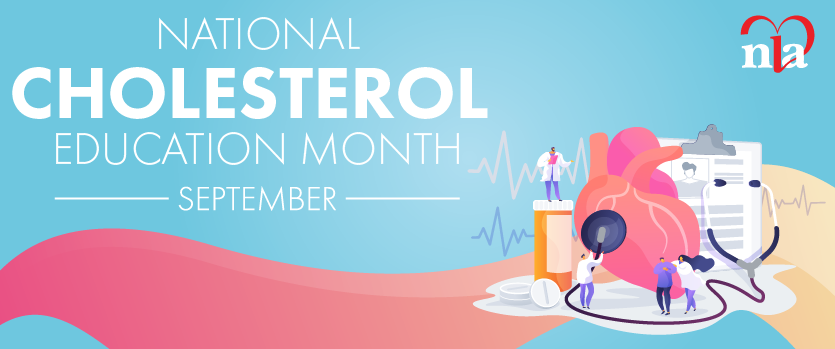From Brigham and Women’s Hospital: Researchers Present Highly Anticipated IMPROVE-IT Results
Adding ezetimibe to statin therapy further lowered cholesterol levels and resulted in fewer cardiovascular events in patients following heart attack
More than a decade ago, researchers from Brigham and Women’s Hospital (BWH) demonstrated that a high dose statin, which lowered cholesterol further than a regular dose statin, provided better clinical outcomes. But questions remained about whether further reducing cholesterol would be even more effective in reducing cardiovascular-related events.
Now, results of the highly anticipated IMProved Reduction of Outcomes: Vytorin Efficacy International Trial (IMPROVE-IT), co-led by researchers at BWH and Duke Medicine, indicate that adding a second drug, ezetimibe, that blocks cholesterol absorption, resulted in a significant 6.4 percent reduction in the number of cardiovascular events.
The findings, presented as a late breaking clinical trial at the American Heart Association Scientific Sessions on Nov. 17, 2014, clarify a long-standing question in cardiac care about whether reducing cholesterol to even lower levels might improve outcomes. Complete publication of the data is expected in the coming months.
“There is a lot of evidence that demonstrates that low cholesterol is better, and our findings suggest that even lower is even better,” said Christopher Cannon, MD, principal investigator of IMPROVE-IT and a cardiologist and researcher in the TIMI Study Group at BWH. “More broadly, the results of IMPROVE- IT re-emphasize the central role of lowering LDL cholesterol for the treatment of high risk patients.”
In this multicenter, double-blind, placebo-controlled international randomized trial, researchers enrolled 18,144 patients with acute coronary syndrome (ACS), described as heart attacks or worsening chest pain, and all were treated according to the previously existing guidelines with a statin (simvastatin).
In the control group, patients who received statin therapy alone reached a median LDL cholesterol level of 69 mg/dl for a median of six years. Researchers found that when patients received the non-statin medication ezetimibe, in addition to the statin (ezetimibe/simvastatin combination/brand name VYTORIN), LDL cholesterol was reduced 20 percent further to a median level of 54 mg/dl, and this led to a statistically significant 6.4 percent reduction in the number of cardiovascular events. (p=0.016) After seven years, the combined rate of cardiac death, heart attack, stroke, hospitalization for worsening chest pain, or need for revascularization, was reduced from 34.7 percent in the control group to 32.7 percent in the group that received the combination therapy. Additionally, researchers report that approximately two cardiovascular events were prevented in the trial for every 100 patients treated, with the difference driven by reductions in heart attack or stroke.
“This trial demonstrates the importance of careful measurement of long-term outcomes in randomized trials for medicines that are taken for chronic diseases,” said Robert Califf, MD, vice chancellor for clinical research at Duke and co-study chair of the trial. “We were looking for a small effect and we found an effect very close to what we expected, clearly favoring the group taking ezetimibe/simvastatin. The trial confirmed the existing safety profile of ezetimibe.”
“Our findings suggest that, among this population of ACS patients, we may want to consider changes to our clinical guidelines, which might include an LDL cholesterol target of closer to 55, or lower,” said Eugene Braunwald, MD, co-study chair, and founding chairman of the TIMI Study Group at BWH.
Additional data from the trial will be presented at the AHA meeting on Tuesday in a trial update session. The presentation, the first additional analysis of the study database led by the Duke Clinical Research Institute, will focus on the population of individuals who completed the study on medication.
"We are using this analysis as a first look at the findings of the primary analysis, and to look at the data among patients only during the time that they actually remained on treatment during the study,” said Michael Blazing, MD, associate professor of medicine and director of outpatient services at the Duke Heart Center who will present the findings of the on-treatment group in the Tuesday session.
Ezetimibe is a drug approved to lower plasma cholesterol levels by decreasing absorption of LDL cholesterol in the small intestine, and is additive to the role that statins play in lowering cholesterol. Ezetimibe and the ezetimibe/simvastatin are sold by Merck, which sponsored and provided funding for this study.
Please see link to Dr. Cannon's presentation here: http://www.timi.org/index.php?page=improve-it-timi-40
Brigham and Women's Hospital (BWH) is a 793-bed nonprofit teaching affiliate of Harvard Medical School and a founding member of Partners HealthCare. BWH has more than 3.5 million annual patient visits, is the largest birthing center in Massachusetts and employs nearly 15,000 people. The Brigham’s medical preeminence dates back to 1832, and today that rich history in clinical care is coupled with its national leadership in patient care, quality improvement and patient safety initiatives, and its dedication to research, innovation, community engagement and educating and training the next generation of health care professionals. Through investigation and discovery conducted at its Brigham Research Institute (BRI), BWH is an international leader in basic, clinical and translational research on human diseases, more than 1,000 physician-investigators and renowned biomedical scientists and faculty supported by nearly $650 million in funding. For the last 25 years, BWH ranked second in research funding from the National Institutes of Health (NIH) among independent hospitals. BWH continually pushes the boundaries of medicine, including building on its legacy in transplantation by performing a partial face transplant in 2009 and the nation’s first full face transplant in 2011. BWH is also home to major landmark epidemiologic population studies, including the Nurses' and Physicians' Health Studies and the Women's Health Initiative. For more information, resources and to follow us on social media, please visit BWH’s online newsroom.
Duke Medicine conceptually integrates the Duke University Health System, the Duke University School of Medicine, and the Duke University School of Nursing. It is the combination of research, clinical care, and education that takes place through the efforts of our faculty, staff, students, and trainees at many different sites throughout our region and worldwide. As part of the Duke University School of Medicine, the Duke Clinical Research Institute is known for conducting groundbreaking multinational clinical trials, managing major national patient registries, and performing landmark outcomes research. DCRI research spans multiple disciplines, from pediatrics to geriatrics, primary care to subspecialty medicine, and genomics to proteomics. The DCRI also is home to the Duke Databank for Cardiovascular Diseases, the largest and oldest institutional cardiovascular database in the world, which continues to inform clinical decision-making 40 years after its founding.
More information here: http://www.businesswire.com/news/home/20141117005291/en/VYTORIN%C2%AE-ezetimibesimvastatin-Significantly-Reduced-Cardiovascular-Events-Simvastatin#.VGqu_snPFSI





.jpg)
.png)










